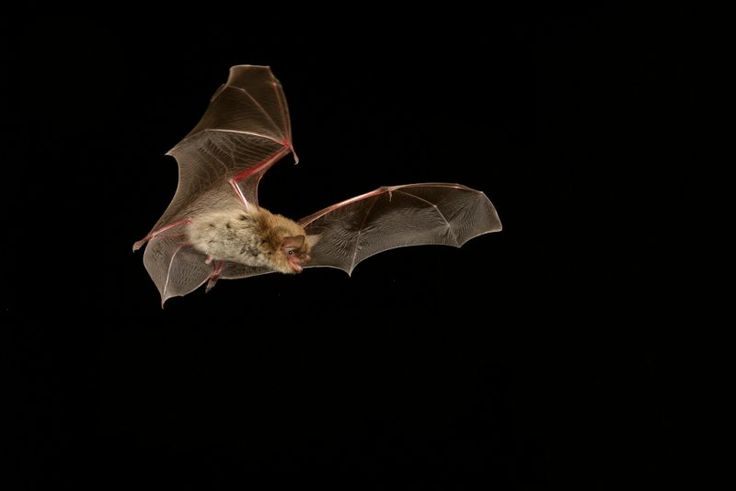Bats are fascinating creatures with unique habits, particularly their strong inclination to return to familiar roosting spots. Their nightly routines are guided by a combination of memory, scent trails, and the security offered by a dependable shelter. This remarkable behavior ensures they have a safe place to rest during the day before embarking on their nightly search for food. Understanding why bats exhibit such loyalty to their roosts can provide valuable insights for homeowners who encounter these nocturnal visitors.
Whether a bat roosts temporarily or remains a year-round resident depends on factors like climate, migration patterns, and habitat suitability. For those observing bat activity near their property, recognizing their predictable behavior is essential to managing potential issues while respecting these creatures’ role in the ecosystem.
Related: How serious is a bat infestation?
Why Bats Return to Familiar Locations
Bats are highly instinctual creatures, and their return to familiar locations is driven by several key factors. One of the most significant reasons is the scent trails they leave behind. These trails act like a natural GPS, helping bats find their way back to their preferred roosting spots. Over time, these locations become imprinted with their scent, reinforcing the habit of returning nightly.
Another reason bats revisit the same places is the safety and security these spots offer. Roosts provide shelter from predators, harsh weather, and other environmental threats. Familiarity also plays a crucial role—bats have an impressive memory that helps them recognize dependable shelters. This blend of practicality and instinct ensures that bats consistently choose spots they perceive as safe and reliable.
Daily Roosting Habits
Bats exhibit distinct patterns in their daily roosting habits, which are influenced by their nocturnal lifestyle. During the day, they seek out dark, secluded spaces where they can rest undisturbed. These locations often include caves, attics, tree hollows, or other quiet shelters that provide protection from daylight and predators. Daytime roosts are critical for their survival, as bats conserve energy for their active nighttime feeding.
At night, their behavior shifts as they venture out to hunt for insects or forage for food. While bats may fly significant distances to feed, they frequently return to the same general area or even the same specific roosting spot after their nightly activities. This consistent behavior reflects their preference for routine and their reliance on known, dependable shelters. Recognizing these patterns can help property owners understand why certain locations become repeat destinations for bats.
Migration vs. Residency
Bat behavior varies greatly depending on the species and their habitat, particularly when it comes to migration and residency. In regions with colder climates, many bats migrate seasonally to escape harsh winters and find warmer areas with abundant food sources. These migratory bats often travel hundreds or even thousands of miles, returning to familiar roosting spots during warmer months.
In contrast, bats in warmer or tropical climates tend to be year-round residents. They establish stable roosting sites that provide consistent shelter and proximity to food. Even within migratory species, some individuals may remain in one location if conditions are favorable. Understanding whether bats in your area are migratory or residential can help predict their behavior and assess the likelihood of them returning to a specific spot.
Signs a Bat May Return
If bats have used a particular spot as a roost, there are often clear signs indicating they might return. One of the most common indicators is the presence of guano, or bat droppings, which can accumulate beneath their roosting site. These droppings not only reveal where bats have been but also act as a scent marker, guiding them back to the same location.
Other signs include visible stains or markings near entry points, often caused by the oils from their fur. You may also notice faint scratching sounds, chirping, or fluttering during their active hours. Additionally, bats are creatures of habit and often return to roosts they perceive as safe, especially if they remain undisturbed. Identifying these clues can help determine if bats are likely to revisit and guide decisions on how to address their activity effectively.
What Happens If You Disturb Their Roost?
Disturbing a bat’s roost can have varying effects, depending on the severity of the disruption and the species involved. In some cases, bats may relocate temporarily if their roost becomes less secure or hospitable. However, if the disturbance is minor, such as cleaning droppings or sealing a small opening, bats often persist in their efforts to return. Their strong attachment to familiar shelters means they might find alternative entry points or linger nearby.
Significant disruption, like blocking off access entirely or removing the structural appeal of the roost, may force bats to move elsewhere. It’s essential to handle such situations carefully and in compliance with local wildlife laws, as many bat species are protected. Improperly disturbing their roosts can lead to unintended consequences, such as bats scattering to harder-to-reach areas or becoming stressed, which could increase health risks like disease transmission. Professional guidance ensures both humane and effective solutions.
Let AAAC Wildlife Removal Help You Keep Bats Out
Bats’ habit of returning to familiar roosting spots can make them difficult to manage without expert help. At AAAC Wildlife Removal, we understand the importance of protecting your property while respecting bats’ role in the ecosystem. Our team specializes in humane and effective solutions to prevent bats from roosting in unwanted spaces.
Whether you need assistance sealing entry points, cleaning up roosting areas, or implementing long-term deterrents, AAAC Wildlife Removal has you covered. Don’t let bats disrupt your peace of mind—contact us today for professional bat removal services and take the first step toward a bat-free home!





